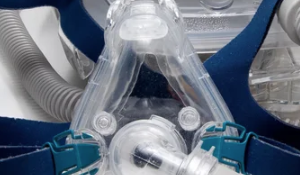A guy walks into a car dealership to buy a sporty import from Italy. The price tag is north of $100,000. The dealership says the car is coming from Italy and delivery can be in about 8 weeks. They take a sizeable down payment and order the car and do an admirable job of keeping the customer informed of the progress of the car’s journey from Northern Italy to the US and into the customer’s garage. There’s a slight delay, but the dealership keeps the customer informed and he’s happy to accept delivery of his dream car just over 9 weeks after the day he walked into the dealership.
HQAA Blog
Topics: Retail, Customer Service, Business Practices, Care Plan
I took a bioethics class in college and I remember the professor being very vocal about being against capital punishment. “Those with the capital, don’t get the punishment” was a quote I remember him using during our discussions. Later in the class, a student asked the professor how he would feel if he or his family were victims of some potentially capital crime. “Someone stole my lawnmower last month,” the prof told us. “If they caught the guy that took my mower, and I was the guy to dispense justice, capital punishment wouldn’t be enough and couldn’t be done fast enough. That’s why our society uses judges and jury for these things—I’d have a ‘conflict of interest’ and couldn’t render a fair decision.”
On survey recently, a DME owner complained about his retail showroom and how little business the beautiful, well organized space generated for the company. “It seems like a waste of space”, he opined, “and I’m frankly thinking about giving it up and moving into a smaller space with offices and warehouse only”. Looking around his store, my initial reaction was that the space looked very good, his staff was friendly and helpful, and the location was on a major road in close proximity to other retail establishments and also a hospital and bunch of physician offices. Furthermore, his business had a lot of foot traffic from CPAP customers coming in for set up instruction and oxygen customers coming in to exchange portable cylinders. So, why was the retail side of his business languishing?
Topics: Showroom, Retail, Customer Service, Marketing, DMEPOS
The unfortunate lady in the vintage photograph is Fanny Mills, who was known as “The Ohio Big Footed Girl”. Fanny lived in Sandusky Ohio in the late 1800’s and suffered from Milroy’s Disease, which is a congenital disease that causes lymphedema and generally poor circulation in the lower extremities. There was no treatment for this disorder at the time and Fanny lived with the condition into her 40’s. She eventually succumbed to the disease and her cause of death was listed as “abscess”. The photos were taken when she worked in a dime museum, a place similar to a circus sideshow that featured performers and exhibits of medical oddities. Sadly, her affliction was untreatable at the time. Lymphedema is still around, but thankfully is much more treatable today than in the 19th century!
Topics: HQAA Accreditation, CMS, DMEPOS
Under Pressure: PAP, IPPB, and Other Therapies
HQAA’s Equipment List is the vehicle organizations use to disclose what products and supplies they provide to their customers. It looks a lot like a Medicare form (the 855-S), which serves a similar role for companies providing care to Medicare recipients and it's very important that the information on the 855-S matches up with HQAA’s equipment list. The list is three pages long, and broken up into categories. One of the categories is respiratory equipment, which includes oxygen, ventilators, and CPAP, along with some other less common therapy modalities that utilize pressure to treat various respiratory disorders.
Topics: Clinical Respiratory Services, Oxygen, DMEPOS
Topics: HQAA Accreditation, Surveys, Care Plan
For those of us that live in parts of the country with cold, rainy, snowy, and overcast winter seasons, spring is a great time and maybe the most beautiful part of the year. It is a time of rebirth as the grass becomes green again and leaves on trees reappear and flowers and budding plants begin to bloom. I don’t know why spring became associated with “spring cleaning”, but every year as the weather improves, many of us do a deep and thorough annual cleaning along with a reorganization and thinning out of our “stuff”.
Topics: Materials Management, Showroom, Retail, Delivery, Warehouse, Equipment
Employees, managers, and owners of DME organizations accredited by HQAA may have noticed a familiar question that usually pops up during the survey: “What is your organization (or “this location”) proud of? It is almost de rigueur for the surveyors to ask that question at some point during the survey process. Asked that question by a surveyor, the tendency is to consider how it relates to a standard and it’s only natural to think “Gee, how do I answer that” or “What’s the ‘right’ answer here”. Truth is there’s no right or wrong answer. The surveyor is trying to paint a picture of the organization to enhance and supplement their own understanding of your company.
Topics: Surveys
Imagine you are either sitting down to hear a debriefing after your accreditation survey or opening up the report from your accreditation survey. In either/both cases, the surveyor or the accreditation agency will most likely be breaking down any areas of deficiency into issues requiring on site follow up or issues requiring written follow up. Different accrediting bodies call these categories by different names, but in all cases, they are essentially issues that you need another visit to clear or issues that can be cleared through some type of written follow up report.
Topics: Renewing Accreditation, HQAA Accreditation, Compliance, Business Practices, Surveys
A “contract” is defined as “an agreement between two parties that creates an obligation to perform or not perform a particular duty”. Organizations are sometimes taken aback when a surveyor asks them to see any contracts they have in place during the survey. Accreditation agencies are certainly not law firms nor are surveyors lawyers, but the contracts a DME organization has in place have relevance to the survey process and the quality standards.
Topics: Business Practices











